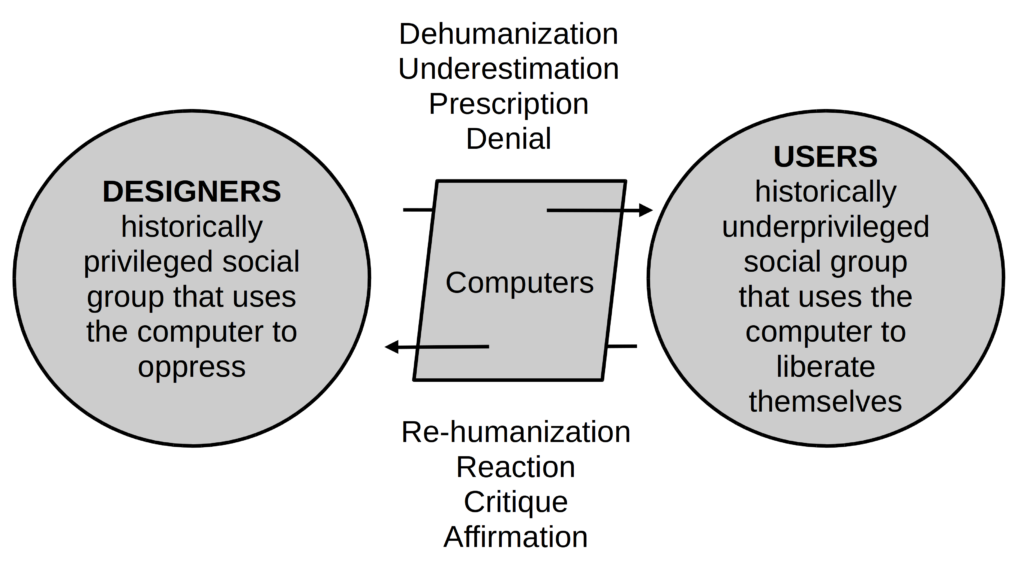Gonzatto, R.F. and Van Amstel, F.M.C. (2022), User oppression in human-computer interaction: a dialectical-existential perspective, Aslib Journal of Information Management, Vol. 74 No. 5, pp. 758-781. https://doi.org/10.1108/AJIM-08-2021-0233

Purpose
This research theorizes the condition of human beings reduced to being users (and only users) in human-computer interaction (HCI), a condition that favors them becoming objects or targets of commercial dark patterns, racialized profiling algorithms, generalized surveillance, gendered interfaces and heteromation.
Design/methodology/approach
The reconceptualization of the users’ condition is done by confronting HCI theories on users with a dialectical-existential perspective over human ontology. The research is presented as a conceptual paper that includes analyzing and revising those theories to develop a conceptual framework for the user oppression in HCI.
Findings
Most HCI theories contribute to the user oppression with explicit or implicit ontological statements that denies their becoming-more or the possibility of users developing their handiness to the full human potential. Put together, these statements constitute an ideology called userism.
Social implications
HCI needs to acknowledge its role in structuring oppression not just in sexism, racism, classism and ableism, but also the specific relation that pertains to HCI: userism. Similar to other fields, acknowledging oppression is the first step toward liberating from oppression.
Originality/value
The user is an existential condition for HCI theories, yet few theories can explain in depth how this condition affects human development. From the dialectical-existential perspective, the user condition can be dehumanizing. Computers may intensify existing oppressions through esthetic interactions but these interactions can be subverted for liberation.
Key takeaway
Users are oppressed people, at least, in the handiness relationship. More often than not, they are also oppressed through gender, race, ability, class, ethnicity, and nation relationships. Computer-mediated oppression reduces the ontological vocation of these people as users and only users of computers. Overcoming oppression in Human-Computer Interaction requires, then, critically reviewing the concept of users and all the methodologies that rely upon it: User-Centered Design, Co-Design, Contextual Inquiry, etc.
Download the paper from the publisher


